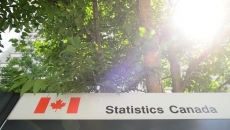VANCOUVER - British Columbia will soon join a handful of jurisdictions around the world where drug users aren't criminalized for possessing small amounts of some illicit drugs for personal use.
Charges will not be laid in B.C. against anyone 18 or older possessing up to 2.5 grams of opioids, cocaine, methamphetamine or MDMA, also known as ecstasy, for three years, starting Jan. 31, 2023.
Uruguay, Portugal, Mexico, Argentina, Colombia, Ecuador and the state of Oregon all have introduced some form of decriminalization in an effort to curb overdose deaths.
Portugal was the first European country to decriminalize all drugs in 2001 and users were provided therapy rather than prison sentences, but B.C.'s addictions minister, Sheila Malcolmson, says decriminalization will not mean forced treatment.
Malcolmson also says substances will not be confiscated, unlike in Oregon, where possession attracts a US$100 fine.
Carolyn Bennett, the federal minister of mental health and addictions, says a decriminalization proposal from Toronto Public Health is currently up for consideration, and the government plans to work with the city in the same way it did with B.C. to "get it to a place that would be successful."
She says there has also been some interest from Montreal, Edmonton and Saskatoon, but they have not submitted proposals seeking decriminalization.






